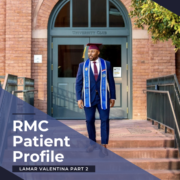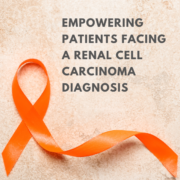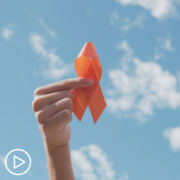How Can Providers Combat Inequities in the Care of Renal Medullary Carcinoma Patients?
This video was originally published by Diverse Health Hub here.
How Can Providers Combat Inequities in the Care of Renal Medullary Carcinoma Patients? from Diverse Health Hub on Vimeo.
Dr. Msaouel tackles the question of how providers can combat inequities in the care of Renal Medullary Carcinoma (RMC) patients. He states that patients go undiagnosed because providers don’t know about the disease. Dr. Msaouel urges that healthcare providers raise awareness about RMC and in doing so be diligent about screening patients with particular symptoms.
According to Dr. Msaouel, young African Americans possessing sickle cell traits and blood in the urine must be taken seriously and screened with ultrasound to check for suspicious kidney masses. They must be thoroughly checked with proper diagnosis. Dr. Msaouel says providers in the US know more about RMC but efforts must be increased to raise optimal awareness not only here in the states but around the world.
Transcript:
Rebecca Law: Dr. Msaouel, what can providers do to combat inequities in the care of Renal Medullary Carcinoma patients?
Dr. Pavlos Msaouel: So that’s a wonderful question. One way to be able to address this is to help as a provider raise awareness. So, one of the things that is happening is that very often in these cases, patients with RMC are undiagnosed because people don’t know about it. So, if healthcare providers know about this then they can think about it, and then they can start having it in mind. And so, if a young individual — especially if it’s a young African American who has the sickle cell trait — comes with blood in the urine in the ER you have to take it seriously.
Dr. Pavlos Msaouel: You have to do potentially an ultrasound of the kidney and if you do an ultrasound of the kidneys and you find something that’s suspicious like a mass, you have to take that very seriously. This is thankfully happening more and more often in the United States, but not necessarily always and it needs to happen more often around the world as well. So, that’s a simple step that we can do to address the inequity for this cancer.










